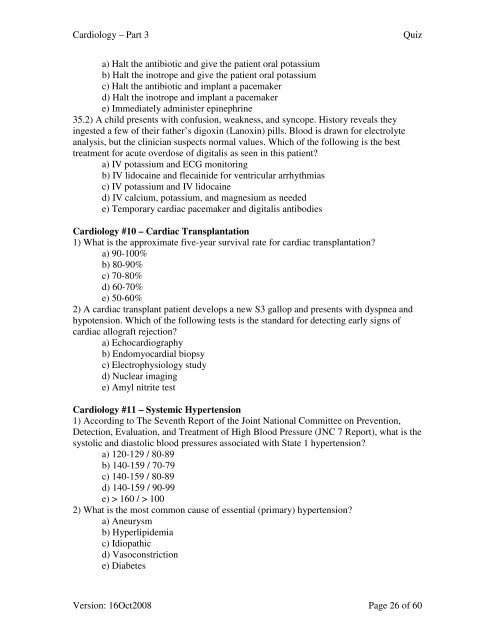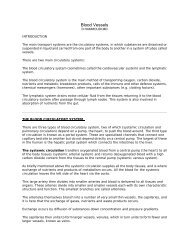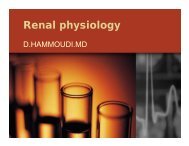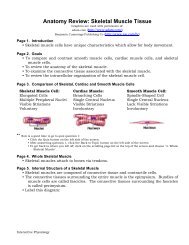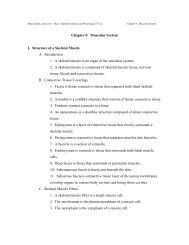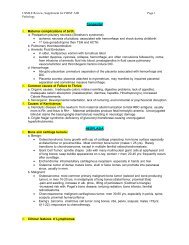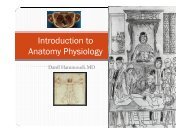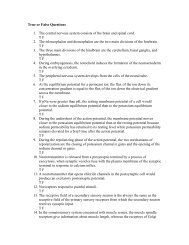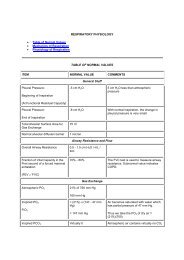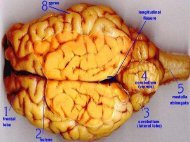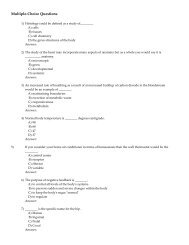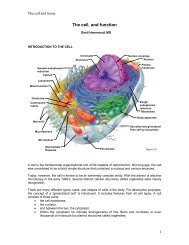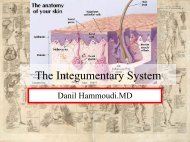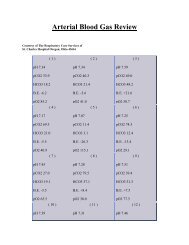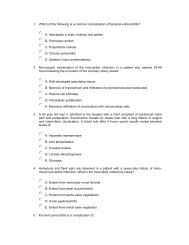Part 3 Quiz Version - Sinoe medical homepage.
Part 3 Quiz Version - Sinoe medical homepage.
Part 3 Quiz Version - Sinoe medical homepage.
You also want an ePaper? Increase the reach of your titles
YUMPU automatically turns print PDFs into web optimized ePapers that Google loves.
Cardiology – <strong>Part</strong> 3<br />
<strong>Quiz</strong><br />
a) Halt the antibiotic and give the patient oral potassium<br />
b) Halt the inotrope and give the patient oral potassium<br />
c) Halt the antibiotic and implant a pacemaker<br />
d) Halt the inotrope and implant a pacemaker<br />
e) Immediately administer epinephrine<br />
35.2) A child presents with confusion, weakness, and syncope. History reveals they<br />
ingested a few of their father’s digoxin (Lanoxin) pills. Blood is drawn for electrolyte<br />
analysis, but the clinician suspects normal values. Which of the following is the best<br />
treatment for acute overdose of digitalis as seen in this patient<br />
a) IV potassium and ECG monitoring<br />
b) IV lidocaine and flecainide for ventricular arrhythmias<br />
c) IV potassium and IV lidocaine<br />
d) IV calcium, potassium, and magnesium as needed<br />
e) Temporary cardiac pacemaker and digitalis antibodies<br />
Cardiology #10 – Cardiac Transplantation<br />
1) What is the approximate five-year survival rate for cardiac transplantation<br />
a) 90-100%<br />
b) 80-90%<br />
c) 70-80%<br />
d) 60-70%<br />
e) 50-60%<br />
2) A cardiac transplant patient develops a new S3 gallop and presents with dyspnea and<br />
hypotension. Which of the following tests is the standard for detecting early signs of<br />
cardiac allograft rejection<br />
a) Echocardiography<br />
b) Endomyocardial biopsy<br />
c) Electrophysiology study<br />
d) Nuclear imaging<br />
e) Amyl nitrite test<br />
Cardiology #11 – Systemic Hypertension<br />
1) According to The Seventh Report of the Joint National Committee on Prevention,<br />
Detection, Evaluation, and Treatment of High Blood Pressure (JNC 7 Report), what is the<br />
systolic and diastolic blood pressures associated with State 1 hypertension<br />
a) 120-129 / 80-89<br />
b) 140-159 / 70-79<br />
c) 140-159 / 80-89<br />
d) 140-159 / 90-99<br />
e) > 160 / > 100<br />
2) What is the most common cause of essential (primary) hypertension<br />
a) Aneurysm<br />
b) Hyperlipidemia<br />
c) Idiopathic<br />
d) Vasoconstriction<br />
e) Diabetes<br />
<strong>Version</strong>: 16Oct2008 Page 26 of 60


